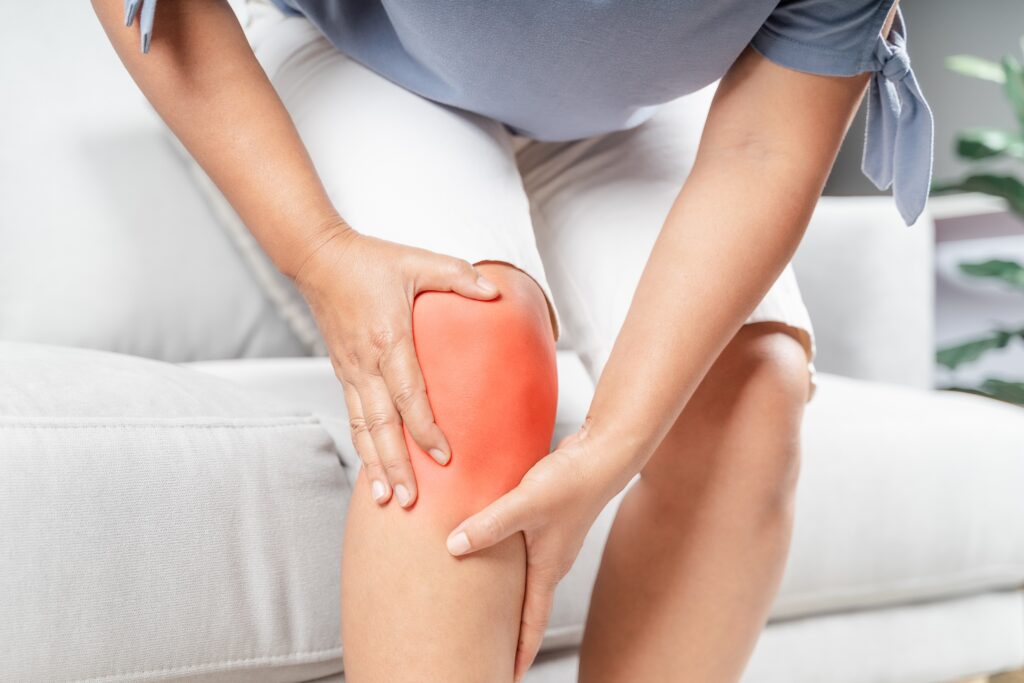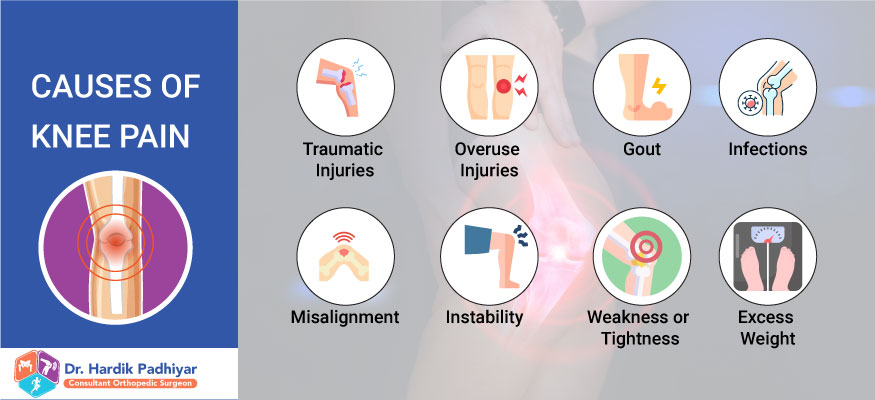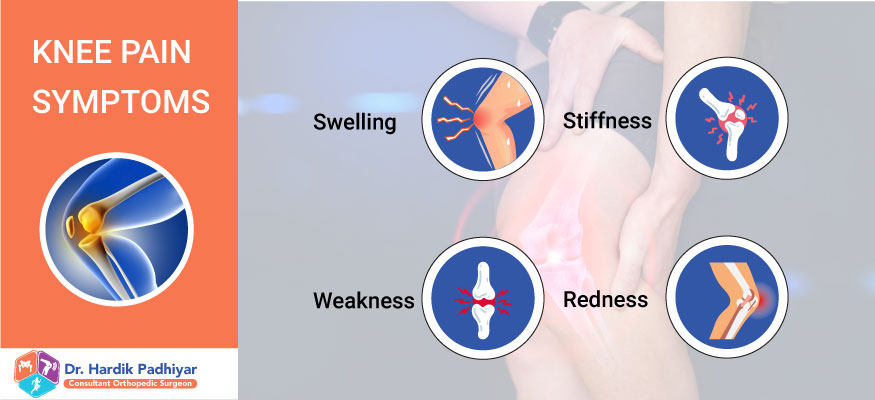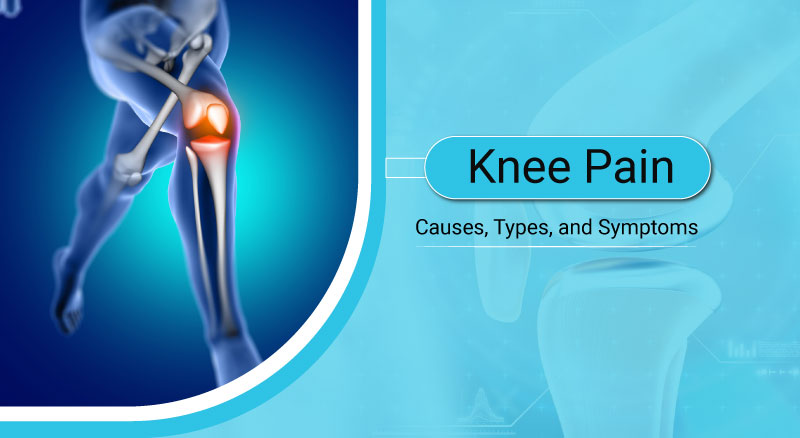Knee pain is a common ailment that can affect people of all ages, limiting mobility and disrupting daily activities. Whether it’s a result of injury, overuse, or underlying medical conditions, understanding the causes, types, and symptoms of knee pain is crucial for effective management and prevention. In this comprehensive guide, we will delve into the intricate details of knee pain, offering insights beyond the basics about knee pain.

Table of Contents
ToggleCauses of Knee Pain:
Knee pain can stem from various causes, ranging from acute injuries to chronic conditions. Trauma, such as fractures, ligament injuries, or meniscus tears, often leads to immediate pain. Overuse injuries, common in athletes and active individuals, can cause wear and tear on the knee joint, resulting in chronic pain. Additionally, underlying medical conditions like arthritis, gout, or infections can contribute to persistent knee discomfort. Understanding the root cause of knee pain is essential for accurate diagnosis and targeted treatment. It’s crucial to consider individual factors such as lifestyle, occupation, and overall health when identifying the cause of knee pain.
Types of Knee Pain
Knee pain manifests in various forms, each requiring specific attention and management strategies. One common type is anterior knee pain, often associated with activities that involve bending the knee, such as running or climbing stairs. Patellofemoral pain syndrome, a subset of anterior knee pain, involves pain around the kneecap and can be exacerbated by factors like muscle imbalance or improper tracking of the kneecap.
Another prevalent type of Knee Pain is posterior knee pain, which can result from conditions like Baker’s cysts or hamstring injuries. Medial and lateral knee pain, occurring on the inner and outer sides, respectively, may be linked to ligament injuries, arthritis, or bursitis.
Understanding the distinct types of knee pain allows for more accurate diagnosis and tailored treatment plans.
Causes of Knee Pain
Knee pain can be a perplexing and debilitating issue, affecting people of all ages and lifestyles. Understanding the myriad causes behind knee pain is crucial for effective management and targeted treatment Injuries:

- Traumatic Injuries: Sudden impacts or accidents can lead to fractures, ligament tears, or meniscus injuries, causing immediate and often severe pain.
- Overuse Injuries: Repetitive stress on the knee pain joint, common in athletes or individuals engaged in strenuous activities, can result in conditions like patellar tendonitis or stress fractures.
- Gout: The accumulation of uric acid crystals in the knee joint can lead to sudden and intense pain, swelling, and redness.
- Infections: Bacterial or viral infections affecting the knee joint can result in pain, warmth, and swelling.
- Misalignment: A misalignment of the kneecap (patella) or the entire leg can lead to uneven stress on the knee joint, causing pain and discomfort.
- Instability: Weakness or damage to ligaments can result in knee instability, making the joint more susceptible to injuries and pain.
- Weakness or Tightness: Imbalances in the muscles surrounding the knee can alter joint mechanics, contributing to pain. For example, weak quadriceps or tight hamstrings can impact knee stability.
- Excess Weight: Being overweight places additional stress on the knee joint, increasing the risk of developing conditions like osteoarthritis.
- Lack of Physical Activity: A sedentary lifestyle can weaken the muscles supporting the knee, making it more susceptible to injuries and pain.
Knee Pain Reasons
The reasons behind knee pain are multifaceted, encompassing a broad spectrum of factors. Mechanical issues, such as misalignment of the kneecap or joint instability, can contribute to pain. Muscle imbalances, where certain muscle groups are stronger or weaker than others, may also play a role in knee discomfort.
Inflammatory conditions like arthritis, whether osteoarthritis or rheumatoid arthritis, are significant contributors to knee pain. Additionally, lifestyle factors, including excess weight and lack of physical activity, can strain the knee joint and exacerbate pain.
Knee Pain Symptoms

Recognizing the knee pain symptoms is pivotal in addressing the issue promptly and effectively. While common symptoms such as swelling, stiffness, and redness, we aim to provide a more comprehensive understanding of the subtle signs that may indicate underlying problems.
Pain that worsens with specific activities, such as climbing stairs or kneeling, may offer valuable insights into the cause of knee discomfort. Crepitus, a crackling or popping sensation within the knee joint, can be indicative of conditions like osteoarthritis. Understanding these nuanced symptoms can empower individuals to seek timely medical attention and adopt preventive measures.
When to See a Doctor
Knowing when to seek medical attention for knee pain is crucial for timely intervention and effective management. If you experience severe pain, swelling, or difficulty bearing weight on the affected knee, it is advisable to consult a orthopedic doctor. Persistent knee pain that interferes with daily activities, as well as symptoms like instability, locking, or a feeling of the knee giving way, should not be ignored.
Additionally, if knee pain is accompanied by signs of infection, such as warmth, redness, or fever, seeking immediate medical attention is essential. Timely intervention can prevent further complications and facilitate a faster recovery.
Conclusion
In conclusion, knee pain is a complex and multifaceted condition that requires a nuanced understanding beyond the basics . By exploring the causes, types, reasons, and knee pain symptoms in greater detail, individuals can gain a more comprehensive perspective on this common ailment. Timely and accurate diagnosis, coupled with targeted treatment plans, is essential for effective management and prevention of knee pain, ensuring improved quality of life and sustained joint health
In summary, orthopedic issues can significantly impact health and lifestyle if not addressed properly. The top orthopedic surgeon in Ahmedabad, Dr. Hardik Padhiyar is highly experienced in evaluating and managing a wide spectrum of musculoskeletal conditions. For the best orthopedic care, consultation with an expert like him should be considered for any joint, bone or muscle issues. Individualized treatment helps patients find long-lasting pain relief and functional restoration.






